Since 1992, UNESCO has worked to strengthen higher education in the developing world through
the UNITWIN and UNESCO Chairs programs. These programs encourage higher education systems in the industrial world to build relationships and share research and expertise with institutions in developing countries as well as regions in transition.
UNITWIN/UNESCO Chairs projects deal with training and research activities and cover all major fields of knowledge within UNESCO’s competence such as Education, Human Rights, Cultural Development, Environment, Basic and Engineering Sciences, Communication, etc. Thus far, 618 UNESCO Chairs and Networks have been established in 123 countries.
A directory of existing projects is available online.Each year, UNESCO designates approximately thirty new UNITWIN networks and UNESCO Chairs in total throughout the world; a majority is awarded to universities.
UNESCO ChairsUNESCO Chairs are awarded each year to individual colleges, universities and research institutions to initiate programs that further research and training in one of UNESCO's fields of competence. A Chair may be established by reinforcing an existing teaching or research program and giving it an international dimension, or one may be established as a new teaching and research unit. More information on current Chairs can be found on the UNITWIN/UNESCO Chairs section of UNESCO's website.
UNITWIN NetworksThrough the University Twinning and Network Scheme (UNITWIN), UNESCO matches colleges, universities and research institutions in industrialized countries with counterparts in the developing world to share information and knowledge in areas of need. Scholars who participate are often linked through web sites and portals, in addition to loaned faculty positions, trainings and conferences.
The Competitive ProcessSelection of participants in this program is competitive, bases on project proposals, that are reviewed by UNESCO.
When the project proposal concerns the establishment of an inter-university network, it can be submitted either by the heads of all institutions involved, or by a single institution which takes the lead, acts as the focal point and ensures the development of the network.
UNESCO seeks the advice and endorsement of national commissions on these proposals, as part of its review process.
In the case of the
U.S. National Commission for UNESCO, it will first screen applications, passing the successful ones to UNESCO itself. Its deadline for receipt of applications this year is March 27.
Click here to go to the National Commission website for the program.Scholars and institutions seeking to apply for a UNESCO Chair or to participate in the UNITWIN program should prepare application materials based on UNESCO's "
Guidelines for the Submission of Project Proposals." More information can also be obtained in the UNESCO document "
Procedures for the UNITWIN/UNESCO Chairs Programme: A Practical Guide."
The deadline for receipt of the applications at UNESCO (after their review in the National Commission) is April 30.
Sources of FundingUNESCO has limited resources. It sees the universities in countries like the United States as financing their own participation using domestic resources. (UNESCO can make some seed money available to universities in developing nations.)
For a U.S. university, this raises the question of where to obtain the resources needed to create a chair or participate in a network. Several U.S. government sources of funding seem possible:
The U.S. Agency for International Development (USAID) funds the "
Higher Education for Development (HED) Program" which promotes higher education's engagement in social and economic development through institutional and human capacity building in developing countries. Between 1998 and 2005, ALO awarded funding to more than 250 partnerships in more than 60 countries.
The National Science Foundation (NSF), and its
Office of International Science and Engineering, have a number of programs that might provide the funds needed for a UNESCO chair. The
Partnerships for International Research and Education was run as a one-time, pilot competition in 2005. If the NSF chooses to hold additional competitions, the PIRE program would be an exceptional source of support.
The Fogerty International Center of the National Institutes of Health is primarily a source of funding for biomedical research. (Note that there is a Special Focus program on HIV/AIDS, which includes a center at Johns Hopkins University.) Fogarty research areas include the
Health, Environment, and Economic Development (HEED) Program, the
International Cooperative Biodiversity Groups (ICBG) and
International Studies on Health and Economic Development.
There are, in addition, thousands of foundations and other charitable organizations that might finance the efforts of a UNESCO Chair or network.
The Foundation Center offers a searchable database of foundation programs, and your institution might well have subscribed to its
online database. (Monthly subscriptions are not expensive, and you can search free of charge at the Center's offices in New York, Washington DC, Atlanta, Cleveland, or San Francisco. There are also
cooperating collections in many states.
Check the Research Office of your university. They have information on sources of financing, and offer assistance in preparing proposals.
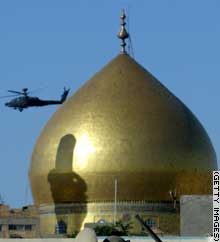 Askariya Before the Bombing
Askariya Before the Bombing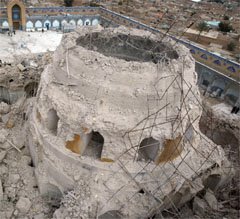


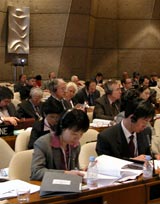 3rd session of the IFAP Council (May 2004)
3rd session of the IFAP Council (May 2004)
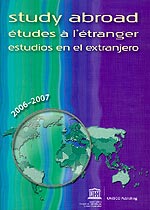
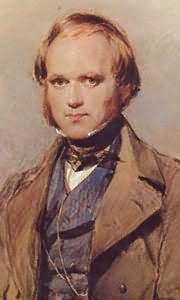 1840 portrait of Charles Darwin, age 31, by George Richmond.
1840 portrait of Charles Darwin, age 31, by George Richmond.